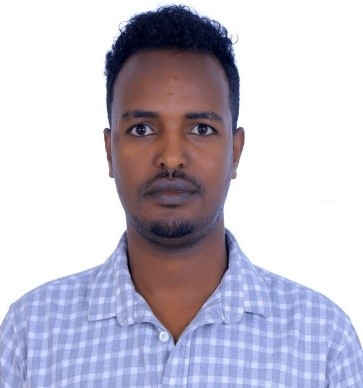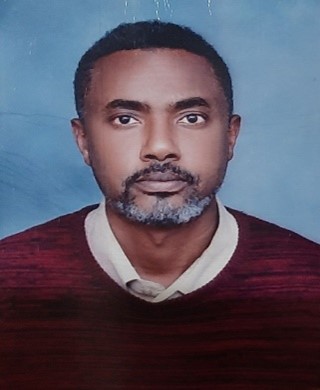Building Bridges for evidence-informed decision-making (EIDM)
"As we continue to build capacity and strengthen networks, our vision remains clear: to embed EIDM within the health system and other development sectors in Ethiopia and beyond, ensuring that high-quality research evidence informs policy and practice for a better future."
The story of Evidence-Informed Decision-Making goes back to 2009 in the Ethiopian Public Health Institute (EPHI). It was a time when Ethiopia was undertaking a business process re-engineering (BPR) (a restructuring process) of the civil service that happened to be the fortunate moment that laid the foundation for knowledge translation at EPHI. At this pivotal moment, Dr. Mamuye Hadis, a senior researcher at EPHI, was appointed to lead the Technology Transfer and Research Translation Directorate which then evolved to Knowledge translation Directorate (KTD). Despite initial challenges and uncertainties, he was the key person to envision the directorate's future and seize the opportunity to transform evidence into policy.
Around this time, Ethiopia joined EviPnet through EPHI, with Dr. Mamuye serving as the focal person. This platform enabled him to connect with Andy Oxman, a pioneer in knowledge translation to policy who conceptualized the Supporting Use of Research Evidence (SURE) project. The collaboration between Dr. Mamuye and Oxman led to EPHI's Knowledge Translation team joining the SURE project. This involvement introduced the team to the concept and practice of policy briefs, an area in which the team continues to excel today.
Through this project, African researchers got an opportunity to network and support decision-making by preparing policy briefs and conducting policy dialogues in their respective countries. Mamuye and his team started to explore policy-relevant questions by engaging with policymakers in the health system. The initial policy briefs were well received by policymakers, leading to the recruitment of more researchers and strengthening the team’s ability to synthesize evidence for policy and practice. This was also the period when enthusiastic public health professionals came on board to sustain the effort.
The team envisions creating a platform where researchers and policymakers could work together from the initiation of policy questions to implementation of the high-quality research evidence to policy and practice. Over the past fifteen years, the team's journey has been marked by numerous achievements, milestones, and challenges.
The networks we have built, the friendships we have established, and our team's work ethic and quality outputs have sustained our progress. One of our long-standing collaborations is with the Ethiopian Evidence-Based Healthcare and Development Center: the JBI Center of Excellence based at Jimma University. Through the mentorship of this center, the KT team at EPHI became the home of the Ethiopian Knowledge Translation Center for Health: A JBI Center of Excellence. This partnership also played a crucial role in the establishment of a PhD program in Evidence-Based Health Care at Jimma University. This gave us a chance to join and build our capacity in EIDM, furthermore ensuring the intergenerational transfer of the knowledge translation approaches in the health system and beyond. This collaboration, initiated and sustained by Professor Morankar Sudakar, exemplifies the importance of goodwill in advancing EIDM in the Ethiopian health system.
We strongly believe in and appreciate the co-creation approaches in the global arena, where we deliver and learn together. Our team has had the chance to collaborate with excellent partners like the African Center Rapid Evidence Synthesis (ACRES) and the Pan-African Collective for Evidence (PACE) with whom we have grown and worked together. ACRES, based in Uganda, has significantly contributed to our development by providing Training of Trainers (ToT) in rapid response services just before the COVID-19 pandemic. This training enabled us to establish rapid evidence synthesis and response services at EPHI, allowing us to address over ten national and regional policy questions through rapid reviews and include daily evidence summaries in SITREP during COVID-19.
Our ongoing engagement with policymakers and work on various policy documents has progressively increased the interest of higher officials in using research evidence for policy. Some notable contributions by the team include 1/ HTA landscape assessment that guided the HTA roadmap development in the ministry 2/ The Ethiopian evidence ecosystem assessment using the WHO framework which informed the drafting of a national strategic framework for research, policy, and strategy, currently being developed under the leadership of the Research Policy and Strategy Lead Executive Office of the ministry.
One of our core values is bringing young leaders to the front. In the past decade, four new leaders have emerged from our team, mentored and supported by senior researchers willing to take a back seat. The result of such a transition is evidenced by the effective leadership of all the leaders until now and the recognition of one of our leaders with the Africa Evidence Leadership Award 2024.
Our accumulated efforts have positioned us as a leading team in knowledge translation in Ethiopia. We are now at a capacity of responding to policy questions and building capacity, training, and mentorship in evidence synthesis including systematic Review, rapid reviews, and policy briefs, and EIDM more broadly.
In conclusion, the EPHI, Knowledge Translation team’s journey in Evidence-Informed Decision-Making has been transformative and impactful over the past fifteen years. Through strategic collaborations, rigorous training, and a commitment to fostering young leaders, the KT team has established itself as a cornerstone in bridging the gap between research and policy. The milestones achieved, from successful policy briefs to the establishment of advanced training programs, underscore the team's dedication and expertise.
As we continue to build capacity and strengthen networks, our vision remains clear: to embed EIDM within the health system and other development sectors in Ethiopia and beyond, ensuring that high-quality research evidence informs policy and practice for a better future.


